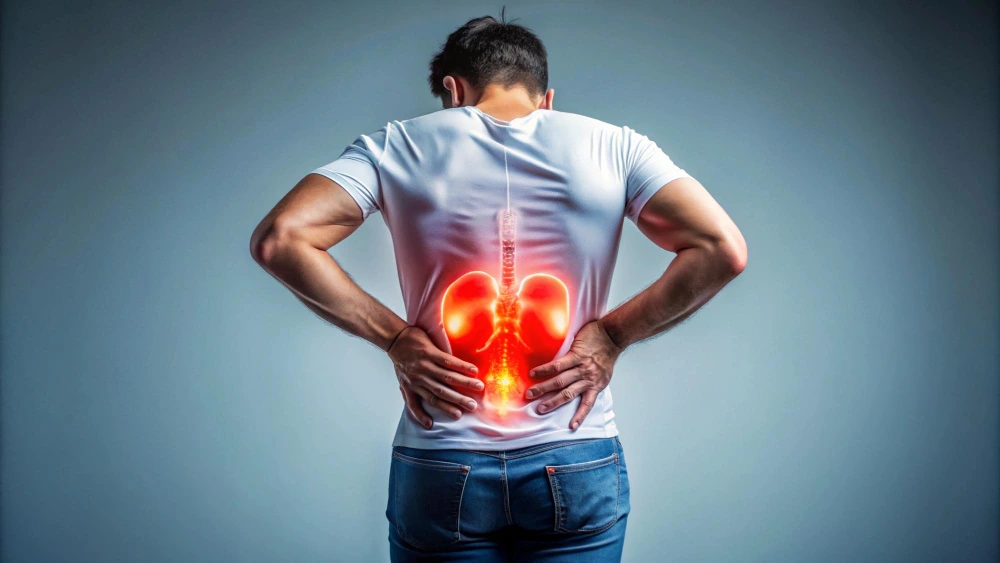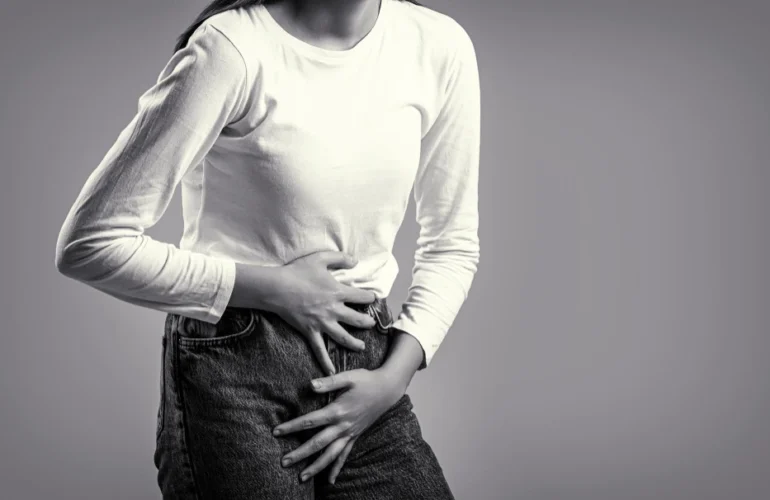Yes, kidney stones can cause frequent urination, especially when they move into the lower part of the urinary tract. The irritation and blockage caused by these stones can lead to symptoms such as an increased urge to urinate, pain during urination, and a feeling of incomplete bladder emptying.
In this comprehensive guide by Kolekar Hospital, we’ll explain why kidney stones cause frequent urination, how to identify related symptoms, and when to seek medical help.
Understanding Kidney Stones
Kidney stones (renal calculi) are hard deposits formed when minerals and salts crystallize inside the kidneys. These stones vary in size from tiny grains to larger stones that can block the urinary tract.
Common types of kidney stones include:
- Calcium stones – Most common type, often made of calcium oxalate.
- Uric acid stones – Linked to dehydration or high protein diets.
- Struvite stones – Often associated with urinary tract infections.
- Cystine stones – Result from a rare genetic disorder that causes cystine buildup in urine.
When kidney stones start to move from the kidneys to the ureters (the tubes connecting kidneys and bladder), they can cause severe pain and urinary symptoms such as frequent urination.
How Do Kidney Stones Cause Frequent Urination?
Frequent urination occurs when kidney stones irritate or obstruct parts of the urinary tract. Here’s how this happens:
1. Irritation of the Bladder or Ureter
As stones move down the urinary tract, they can scrape or irritate the lining of the bladder and ureters, causing:
- Inflammation
- Urge to urinate frequently
- Burning sensation during urination
2. Partial Blockage of Urine Flow
A small stone can partially block the ureter, leading to pressure buildup in the bladder and kidneys. This pressure can make patients feel the need to urinate more often, even if little urine comes out.
3. Urinary Tract Infection (UTI)
Kidney stones can increase the risk of urinary tract infections. When bacteria grow around a stone, they can cause:
- Frequent urination
- Urgency
- Burning sensation
- Cloudy or foul-smelling urine
4. Bladder Stone Formation
If kidney stones travel into the bladder, they may grow into bladder stones, which also trigger frequent urination, discomfort, and lower abdominal pain.
Common Symptoms Along with Frequent Urination
If your frequent urination is due to kidney stones, you may also notice the following symptoms:
- Sharp or cramping pain in the back, side, or lower abdomen
- Pain that radiates to the groin
- Burning sensation during urination
- Blood in the urine (pink, red, or brown color)
- Nausea and vomiting
- Difficulty passing urine or passing small amounts
- Cloudy or foul-smelling urine
- Fever or chills (if infection is present)
These symptoms can vary depending on the size and location of the stone in the urinary tract.
When to See a Doctor
You should seek immediate medical attention at Kolekar Hospital if you experience:
- Severe, persistent pain in the side or back
- Fever or chills with urinary symptoms
- Blood in the urine
- Difficulty passing urine
- Nausea or vomiting with dehydration
Delaying treatment can lead to urinary obstruction or kidney infection, which may result in kidney damage if left untreated.
How Kidney Stones Are Diagnosed
At Kolekar Hospital, urologists use advanced imaging and lab tests to accurately diagnose kidney stones and related urinary problems.
Common diagnostic tests include:
- Urinalysis: Checks for blood, crystals, or infection.
- Blood tests: Detects high levels of calcium or uric acid.
- Ultrasound: A non-invasive test to locate stones.
- CT scan (Non-contrast Helical CT): The most accurate imaging method to detect stones.
- X-ray (KUB): Helps track stone movement or size changes.
Timely diagnosis is key to determining whether frequent urination is due to kidney stones or another urinary condition.
Treatment Options for Kidney Stones and Urinary Symptoms
Treatment depends on the stone size, location, and symptoms. At Kolekar Hospital, both non-surgical and minimally invasive options are available.
1. Medication and Conservative Treatment
For small stones (usually less than 5 mm):
- Increased water intake: Helps flush out the stone naturally.
- Pain relievers: To manage discomfort.
- Alpha-blockers: Such as tamsulosin, help relax the ureter muscles to ease stone passage.
- Antibiotics: If infection is present.
2. Minimally Invasive Procedures
For larger or persistent stones:
- Shock Wave Lithotripsy (SWL): Uses sound waves to break stones into small fragments.
- Ureteroscopy: A thin scope is passed into the ureter to remove or break the stone.
- Percutaneous Nephrolithotomy (PCNL): A small incision in the back allows direct removal of large stones.
- Laser Lithotripsy: A laser fiber breaks stones into tiny pieces that pass naturally.
3. Surgical Treatment
In rare cases where stones are too large or complications occur, surgery may be needed to restore normal urine flow and protect kidney function.
Preventing Frequent Urination Due to Kidney Stones
Prevention focuses on reducing the risk of new stones forming and maintaining urinary tract health.
1. Stay Hydrated
Drink at least 2.5 to 3 liters of water daily to dilute minerals and prevent crystal formation.
2. Modify Diet
- Limit sodium and animal protein intake.
- Avoid foods high in oxalates (spinach, nuts, tea, chocolate).
- Include citrus fruits like lemon and orange to increase urinary citrate, which prevents stone formation.
3. Maintain a Healthy Weight
Obesity increases the risk of kidney stones and urinary issues.
4. Manage Underlying Conditions
Control conditions like:
- High blood pressure
- Diabetes
- Gout
- Recurrent UTIs
5. Regular Follow-Ups
Regular check-ups at Kolekar Hospital ensure early detection and management of recurring stones.
Differentiating Frequent Urination Caused by Kidney Stones vs Other Causes
| Cause | Symptoms | Associated Conditions |
| Kidney Stones | Pain, burning sensation, blood in urine, back pain | Ureter blockage, kidney inflammation |
| UTI | Burning, urgency, cloudy urine | Bacterial infection |
| Overactive Bladder | Sudden urge to urinate, leakage | Nerve or muscle dysfunction |
| Diabetes | Excess urination, thirst, fatigue | High blood sugar |
| Prostate Enlargement (Men) | Frequent urination, weak flow | Benign prostatic hyperplasia |
If you experience frequent urination without pain, other causes like infection, bladder disorders, or diabetes should also be evaluated.
Complications If Left Untreated
Ignoring kidney stones can cause:
- Recurrent infections
- Kidney swelling (hydronephrosis)
- Chronic kidney disease
- Sepsis (if infection spreads)
- Bladder dysfunction
Therefore, any case of frequent urination with back or side pain should be medically investigated promptly.
Why Choose Kolekar Hospital for Kidney Stone Treatment
At Kolekar Hospital, our expert urologists specialize in diagnosing and treating kidney stones using the most advanced technology.
Our Expertise Includes:
- Comprehensive evaluation for urinary symptoms and stone analysis
- Minimally invasive procedures with quick recovery time
- 24/7 emergency care for acute kidney stone pain
- Personalized prevention plans to reduce recurrence
- Advanced imaging and diagnostics for accurate treatment
Our patient centered approach ensures that each individual receives the best possible care with compassion and precision.
FAQs on Kidney Stones and Frequent Urination
1. Can small kidney stones cause frequent urination?
Yes. Even a small stone near the bladder can irritate the urinary tract and cause frequent urination or a constant urge to urinate.
2. Is frequent urination the first sign of kidney stones?
Not always. Early symptoms usually include back or flank pain. However, frequent urination can occur if the stone moves closer to the bladder.
3. Can kidney stones cause urinary tract infections?
Yes. Stones can trap bacteria in the urinary tract, leading to repeated infections and urinary frequency.
4. How long does frequent urination last after passing a stone?
The symptom usually subsides within a few days after the stone passes, but persistent issues should be checked by a urologist.
5. Can dehydration cause both kidney stones and frequent urination?
Yes. Dehydration increases stone risk due to concentrated urine, but once stones irritate the bladder, they can cause frequent urination despite low water intake.
Conclusion
Can kidney stones cause frequent urination?
Yes, they can especially when they move into the lower urinary tract and irritate the bladder or ureter.
Frequent urination accompanied by pain, burning, or blood in the urine should never be ignored. Early diagnosis and treatment at Kolekar Hospital can prevent complications, relieve symptoms, and protect long term kidney health.
If you’re experiencing persistent urinary issues or suspect kidney stones, consult our expert urologists today for a comprehensive evaluation and personalized treatment plan.
![]()



